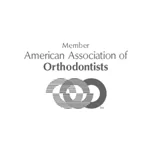Day of Activities
Bite down on the gauze until the bleeding has stopped. Avoid spitting or sucking so as not to disrupt the blood clot. Restrict your activities on the day of surgery and return to normal activities slowly. Place ice packs on the outside of the face where the tooth extractions were done. Use ice for the first 24 hours to decrease swelling by applying it on and off 20-30 minutes at a time.
Pain After Tooth Extraction
Pain medications are normally required after tooth extraction. If you can take ibuprofen (Motrin or Advil), take 400–600 mg every 6–8 hours. Ibuprofen will help with pain relief and as an anti-inflammatory. If you cannot take ibuprofen, then 1–2 tablets of regular Tylenol should be taken every 4 hours. If you were prescribed a stronger pain medication such as Vicodin, Norco, Tylenol with codeine, or Percocet, follow the directions written on your prescription bottle. If you do take any of these medications, do not drive or work around machinery. Also, avoid alcohol while taking these medications.
If the pain is severe, not controlled with your medications, or persists, text our office for further instructions. For after hours emergencies call: (619) 722-8997
Oral Hygiene After Tooth Extraction Surgery
Rinsing should not be done the day of tooth extraction surgery. On the day after surgery, gentle rinsing with warm salt water should be done after each meal. You can brush your teeth the day after your tooth extraction, but be careful not to traumatize the area where the surgery was done.
Diet After Tooth Extraction
If you had IV sedation or general anesthesia for your tooth extraction procedure, liquids should be initially taken. Your diet can then progress to more solids as tolerated. Ensure adequate fluids and nutrition to prevent dehydration. Avoid using a straw for 1 week after tooth extraction to avoid a dry socket.
Nausea and Vomiting After Tooth Extraction
After IV sedation or general anesthesia for a tooth extraction, some patients may feel nauseated and vomit. To help avoid this problem, do not take your medications on an empty stomach. Hold off on your medications, if possible, until the nausea subsides. Try to stay hydrated with liquids. Sometimes patients feel nauseated from the prescribed pain medications, particularly the stronger pain medications such as hydrocodone or oxycodone (Vicodin or Percocet). Try stopping the pain medications and see if nausea subsides. If you have continued nausea and vomiting, text or call our office for further instructions.
Bruising and Discoloration After Tooth Extraction
After tooth extraction, some patients may notice bruising or discoloration around the areas of surgery. This is normal postoperatively and can take several days to subside.
Jaw Tightness or Limited Mouth Opening After Tooth Extraction
This is normal following tooth extraction and will improve and resolve over time. On occasion, you may be shown jaw exercises to help increase your jaw opening.
Dizziness or Light-Headedness After Tooth Extraction
After IV sedation or general anesthesia, some patients may feel dizzy when standing up. Always have someone watching you the first 24 hours after sedation. Do not get up quickly from a sitting or lying position, and make sure to remain hydrated with fluids.
Smoking After Tooth Extraction
Smoking can inhibit the healing process and can cause more pain after surgery. To ensure the best post-operative recovery, refrain from smoking as long as possible after surgery.






